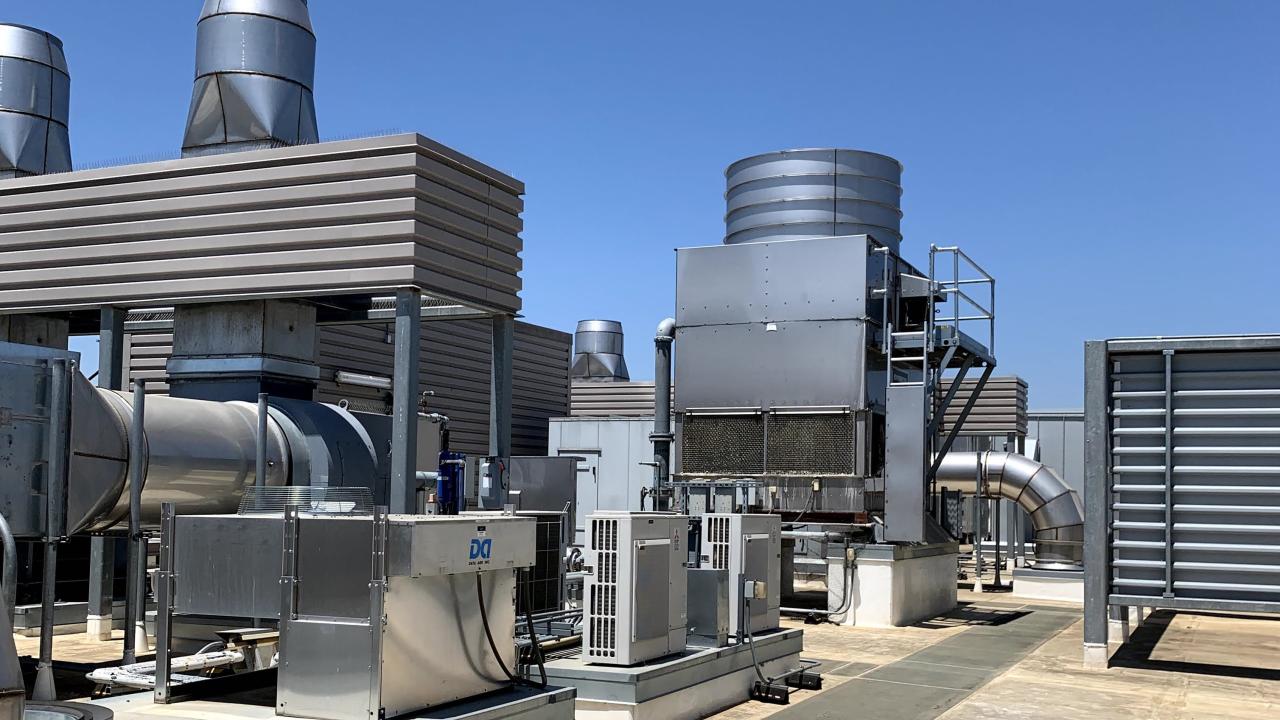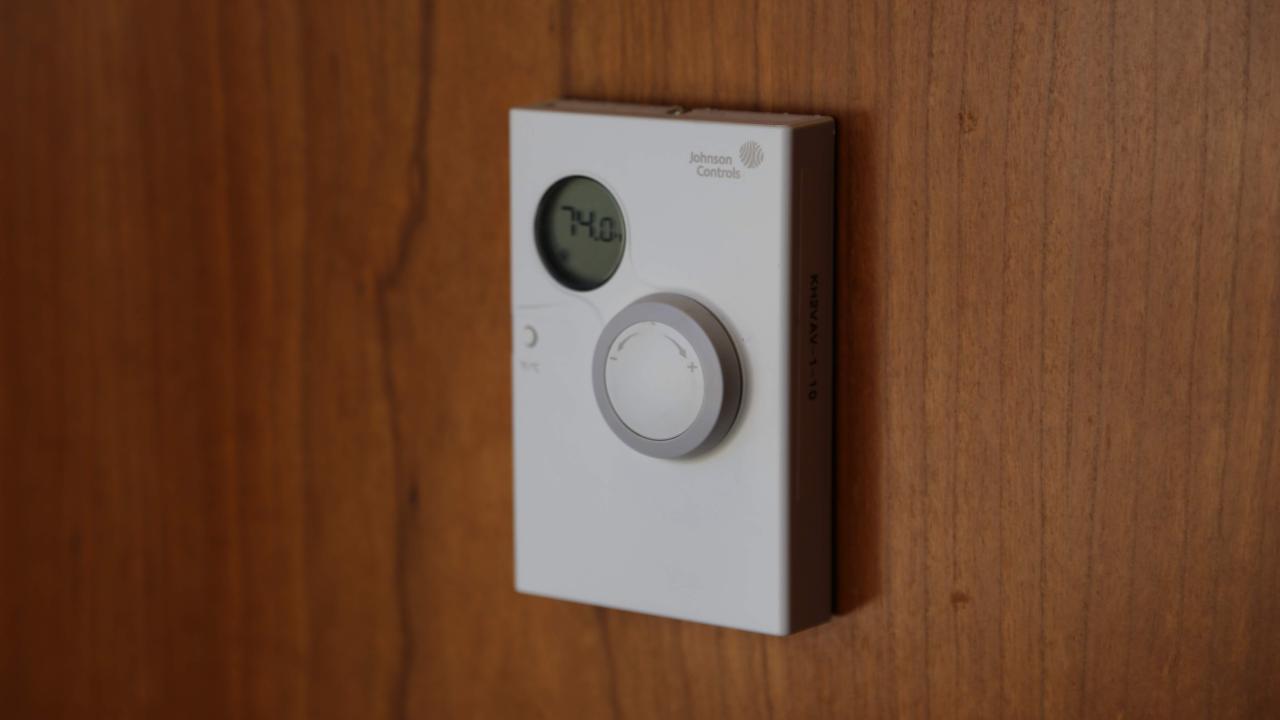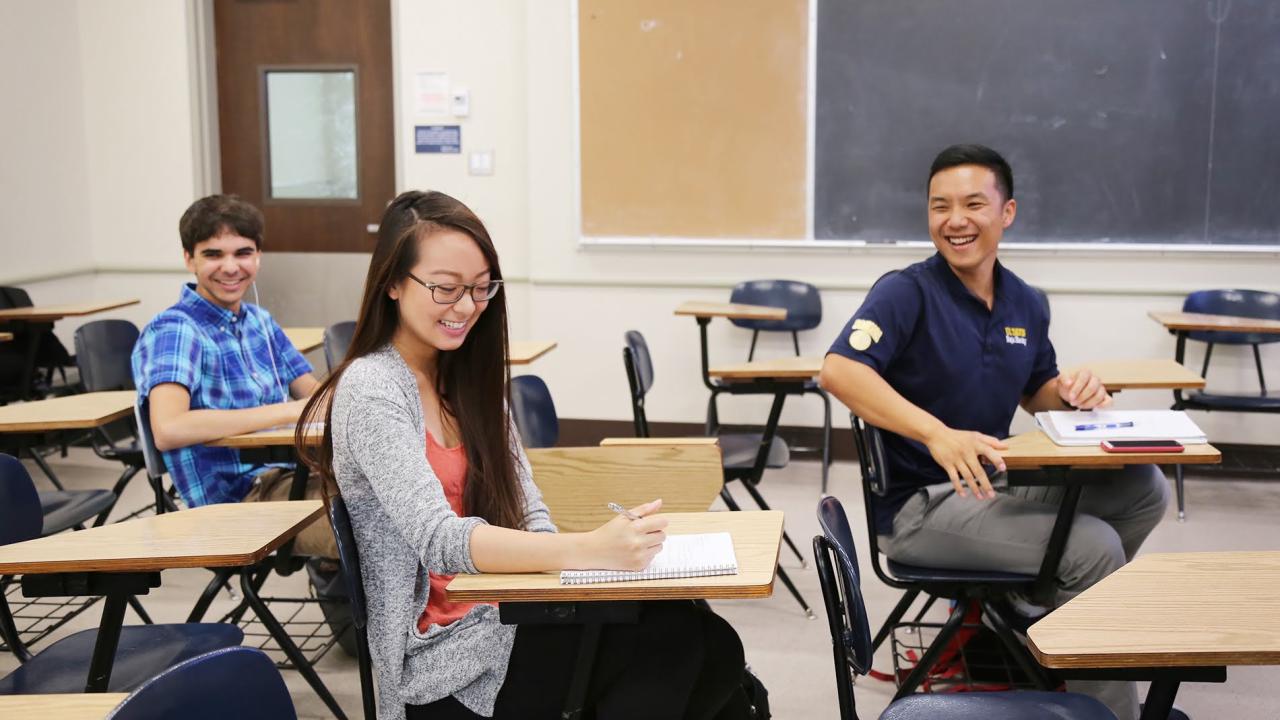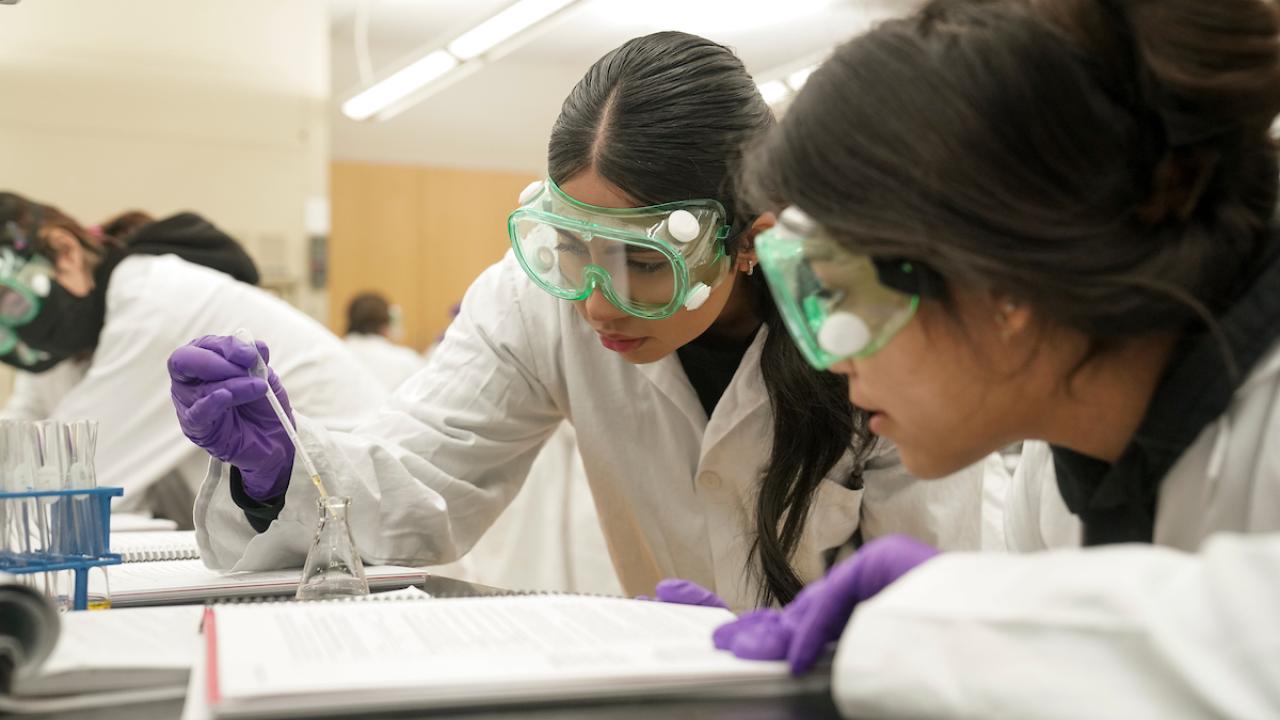What affects comfort in offices?
Every office and space on the UC Davis campus is different. The following items all have an impact on an individual's comfort level in an office.
- The location of the vents in the room
- Both the type and location of the vents in a room affect airflow and in turn your comfort.
- The number of people in the room
- The number of people and the size of the room affects how warm or cool it can feel in the space. More people in a smaller room can feel stuffy, but fewer people in the same room can feel comfortable.
- The number of offices controlled by one thermostat
- It's possible you share a thermostat with your neighbor. Sharing a thermostat with an office neighbor means the temperatures in your rooms are connected. For example, if they leave their office for a week and the thermostat is in their room, the thermostat will think the office is unoccupied and it won't heat or cool the space it controls (including your room). The more you collaborate with your neighbor, the more comfy you'll be.
- The age of the building and the heating/cooling system
- The UC Davis campus is over 100 years old, and while some buildings are brand new others are steeped with history (and older HVAC systems). A newer HVAC system typically means we're able to see and control more aspects of thermal comfort.

Older mechanical rooms have less automation and controls. 
Newer mechanical rooms enable more fine tuned heating and cooling. - The presence of windows and natural light
- The amount of natural light entering a space can affect your thermal comfort through heat gain, i.e., the light coming into the room actually heats the space. Or if the light strikes the surface of your skin, you may feel the warmth.
Office Comfort Tips

I'm Hot
- Sit under or near a vent if you run hot. Air enters a room through the vents and simple air movement can feel cooling.
- Avoid sitting in direct sunlight if you run warm. If you sit next to a window in direct sunlight you'll get warmer over time. Consider swapping desks with someone who runs cold and would like to be in the sun.
- Get to know your neighbors. Indoor comfort is often a collaborative effort in office spaces, especially if you share a thermostat.

I'm Cold
- Avoid the vents if you run cold. Air enters a room through the vents and simple air movement can feel cooling. Please don't close the vents, as this could affect airflow to your neighbors.
- Dress in light layers so it's easier to adapt to changing conditions throughout the day. The same way the weather changes throughout the day, indoor factors are constantly changing too.
- Get to know your neighbors. Indoor comfort is often a collaborative effort in office spaces, especially if you share a thermostat.
Thermostat Do's
- Adjust your thermostat a few degrees seasonally
- Try adjusting your temperature a few degrees up in the summer to avoid overcooling. Similarly, adjust the thermostat setpoint down a couple degrees in the winter to prevent overheating. This is a great way to save energy, especially if several people in the building do it together.
- Find out what rooms your thermostat controls
- Try to find out which areas your thermostat controls. Is it just your space, or multiple offices? If your thermostat controls the temperature of several rooms, make sure you're checking in with others when you adjust the set point or when you're away for an extended period of time.
- Use TherMOOstat to let us know how your room feels
- Add a comment to your TherMOOstat feedback to make note of your thermostat's set points as well as any discomfort or abnormalities you're experiencing. When you use TherMOOstat you're helping us track and trend feedback for your building.
Thermostat Don'ts
- Don't place heat sources next to the thermostat
- Don't place heat sources too close to your thermostat, such as a fridge, computer monitor, tea kettle, etc. This also includes ice packs! These kinds of items will affect the temperature reading your thermostat takes of the room, and it will try to compensate for the change. This will disrupt how it services your space, leading to discomfort.
- Don't press buttons harder or set dials to its max
- Don't press the buttons on the thermostat harder or move the set point to it's extremes. It may take a couple of minutes before you feel a change. Moving the slider or set point to its extremes or pressing a button harder will not have a big impact. If you think your thermostat is broken or not responding, please submit a work order.
- Don't expect perfect temps after being away
- Don't expect perfect temperatures upon re-entering your room after being away for a weekend or holiday. If you have been out of the office and it is not an ideal temperature when you return, please be patient. Some buildings have occupancy sensors, which minimize energy waste by reducing service to unoccupied spaces.





